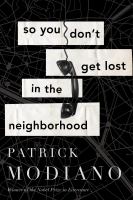Stoicism is getting some attention in contemporary US culture. It is a widely misunderstood philosophy. A daily email, Daily Stoic, provides short observations on Stoicism. Today’s email included this clarification.
One criticism of Stoicism and its emphasis on our ability to control our responses to events is that some reactions really are out of our control. If it gets cold, you’ll shiver. If you hear a loud enough noise, it will startle you. Sure, training can reduce some of this but we are biological creatures. No amount of mental discipline will neutralize a dump of adrenaline or prevent a reflex.
This criticism is often used to dismiss Stoicism…as if the Stoics hadn’t thought about that already. In fact, Seneca readily acknowledges that we will have involuntary reactions to things. He talks at some length about the distinction between motus (our impulses) and affectus (our passions).
Say some stranger comes up and strikes you. You’re going to have a reaction. You might duck. You might throw your hands up. You might even impulsively strike them back. There will be very little thinking involved in any of it. Stoicism is not primarily concerned with those involuntary and immediate reactions. The decision to hate this attacker forever? Being afraid to go outside? Plotting some disproportionate revenge? Those are dangerous passions—passions that are in your control. That’s what Stoicism is about.
~ The Daily Stoic email for January 18, 2018
To which I reply:
Say you have a terrible hangover from tequila. You might attempt to sleep it off, to take aspirin, to moan loudly in your discomfort. The decision to hate tequila forever? Being afraid to go drink again? Plotting temperance advocacy? Those are dangerous passions—passions that are in your control. That’s what Stoicism is about.
~ that voice in my head
Does Stoic humor exist?
